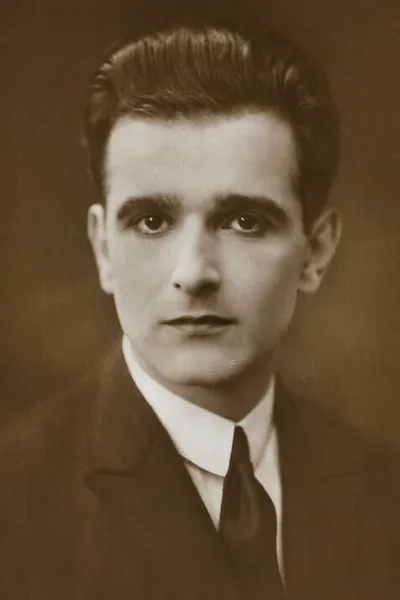
Ernst Winar
Ernst Winar, born Wilhelm Joseph Carl Eichhoff (1894–1978), was a German-Dutch actor, film director and novelist. He appeared in 34 films between 1916 and 1955, and directed 14 films in that period. In 1920 he published the novel 'Peccavi...???', which he co-wrote with actor Adolphe Engers; the book was considered scandalous at the time because of its gay protagonist.
Born into a German family as Wilhelm Joseph Carl Eichhoff, Winar broke off his studies in engineering at a young age and joined the Filmfabriek Hollandia in Haarlem; he assisted directors and crew, and made his acting debut in a supporting role in the film Majoor Frans (1916). Winar was also active on stage, joining the Bouwmeester theater for a short time. Adter some time he started taking on acting jobs in Germany as well; he got his first leading role in Zirkus Renz ('Circus Renz', 1927) by Austrian director Wolfgang Neff. He trained his directing skills at the Terra Film film school in Berlin and in 1923 he directed his first film, Der Mann im Hintergrund ('The Man in the Background').
In the early thirties he came back to the Netherlands. He signed with the Cinetone Studios and subsequently made the films De kribbebijter (1935) and Op stap (1935) with Louis Davids in the lead role. Winar was considered one of only few Dutch directors at Cinetone who had truly mastered the filmmaking profession. After the Second World War, Winar shifted his interest to making children's films, such as Dik Trom en zijn dorpsgenoten ('Dik Trom and his fellow villagers', 1947) and Vier Jongens en een Jeep ('Four guys and a jeep', 1955). The latter was his last film as both actor and director. In the 1960s, Winar supervised young filmmaker Paul Verhoeven as editor and co-writer for his short film Eén hagedis teveel ('One lizard too many', 1960) and documentary Het Korps Mariniers ('The Marine Corps', 1965).
Known for
Acting
Place of birth
Leiden, Netherlands
Birthday
9/3/1894